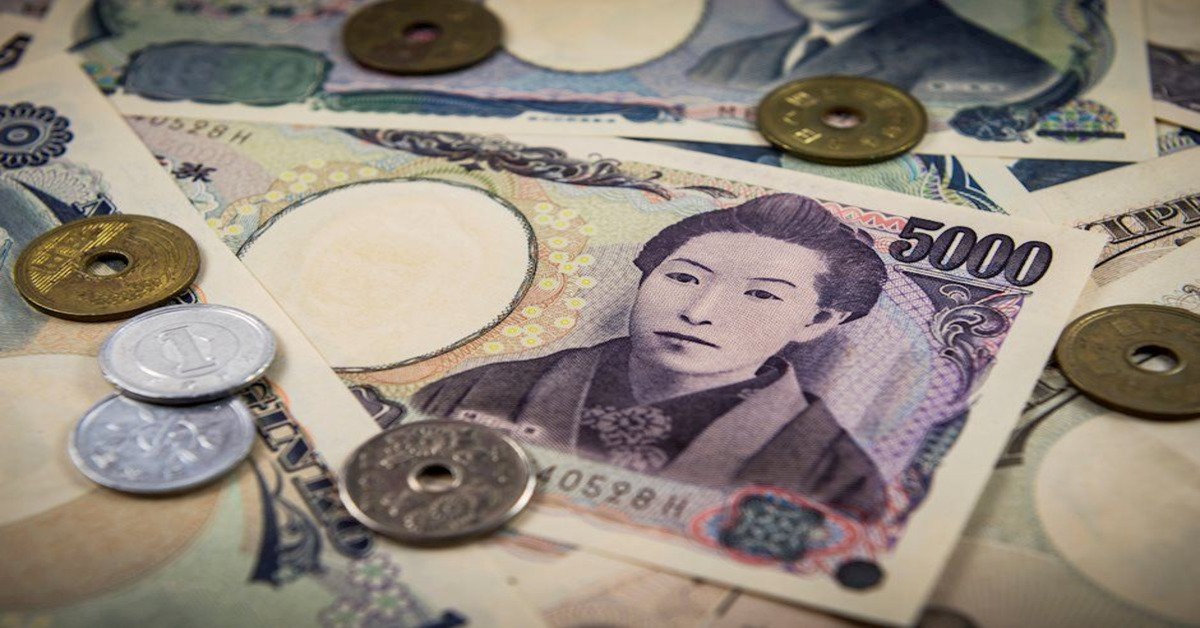Japanese Yen (JPY) Pares Losses Ahead of Key Inflation Data
The Japanese Yen (JPY) has been under pressure recently as investors await the release of key inflation data. The currency has lost ground against the US dollar, prompting concerns among investors about the state of the global currency market. However, the JPY has started to pare some of its losses as the release of the key data approaches.
The current state of the Japanese Yen is being closely watched by investors, who are looking for clues about the future direction of the currency market. The JPY has been under pressure for some time, as concerns about inflation and other economic factors have weighed on the currency. However, recent developments suggest that the JPY may be poised for a rebound, as investors await the release of key inflation data.
Key Takeaways:
- The Japanese Yen has been under pressure recently, as investors await the release of key inflation data.
- The JPY has started to pare some of its losses as the release of the key data approaches.
- Investors are closely watching the state of the Japanese Yen, as they look for clues about the future direction of the currency market.
The Current State of the Japanese Yen
The Japanese yen (JPY) has been fluctuating in value against the US dollar (USD) in recent months. As of November 23, 2023, the USDJPY exchange rate is 114.50. The yen had been losing ground against the USD, but it has since pared some of those losses as key inflation data nears.
The Bank of Japan (BOJ) has been implementing policies to keep the yen’s value stable, including quantitative easing and negative interest rates. However, some experts suggest that the BOJ should shun ultra-loose policy to prop up the yen against the USD.
The yen’s value is closely tied to Japan’s economy, which is the third-largest in the world. Japan is known for its exports, such as automobiles and electronics, which make up a significant portion of its economy. The COVID-19 pandemic has affected Japan’s economy, leading to a decline in exports and a decrease in tourism.
Overall, the current state of the Japanese yen is uncertain, as it is affected by various factors such as inflation data, BOJ policies, and Japan’s economic performance. Investors and traders should keep a close eye on these factors to make informed decisions about trading the yen.
Inflation Data and Its Impact
https://www.youtube.com/watch?v=uz7H4YU1XuQ&embed=true
The Japanese Yen (JPY) has pared some of its losses as investors await key inflation data. The USD/JPY has retreated as investors continue to price-in an end to US rate hikes, and maybe cuts next year.
Inflation is a major factor in the value of a currency. Rising inflation can lead to higher interest rates, which can strengthen a currency. On the other hand, falling inflation can lead to lower interest rates, which can weaken a currency. As such, investors are closely watching the inflation data to determine the direction of the Japanese Yen.
The Bank of Japan has been struggling to hit its 2% inflation target for years, and the latest data suggests that inflation is still well below that level. This has led to speculation that the Bank of Japan may be forced to take further action to stimulate the economy and boost inflation.
The impact of inflation data on the Japanese Yen is significant, and investors are likely to react strongly to any surprises in the data. As such, traders should keep an eye on the latest inflation data and adjust their positions accordingly.
Reaction of Global Markets
https://www.youtube.com/watch?v=sfyjpyKuNKk&embed=true
The Japanese Yen (JPY) has been in the spotlight in recent times due to the key inflation data that is expected to be released soon. The global currency markets have been closely monitoring the developments in Japan and reacting accordingly.
Investors have been keeping a close eye on the U.S. Dollar and the Euro as well, as they are both major currencies that are often affected by changes in the Japanese Yen. The U.S. Dollar has been gaining strength against the Yen in recent days, while the Euro has been relatively stable.
The global markets have been reacting to the news with caution, as there is a lot of uncertainty surrounding the inflation data. Many investors are waiting to see how the data will affect the Bank of Japan’s monetary policy, which could have a significant impact on the global markets.
Despite the uncertainty, there is still a sense of confidence among investors, who believe that the Japanese economy is strong enough to weather any potential storms. This confidence has been reflected in the performance of the Nikkei, which has been relatively stable in recent days.
Overall, the reaction of the global markets to the key inflation data has been measured and cautious. While there is still a lot of uncertainty surrounding the data, investors remain confident in the strength of the Japanese economy and are keeping a close eye on the developments.
The Role of Key Policymakers
https://www.youtube.com/watch?v=aTdIE4vCM-I&embed=true
As the Japanese Yen (JPY) pares some losses, key policymakers are keeping a close eye on the situation. The Bank of Japan (BOJ) and the Finance Minister Shunichi Suzuki are among those who are closely monitoring the developments in the currency market.
The BOJ has been known to intervene in the currency market to prevent excessive volatility in the yen. In August 2023, when the yen slid past 145 per dollar, the BOJ did not take any action. However, policymakers are warning investors against selling the yen, in the wake of the currency’s renewed slide beyond 150 to the dollar.
The U.S. Federal Reserve’s monetary policy decisions also have an impact on the yen. If the Fed raises interest rates, it could lead to a stronger dollar and weaker yen. In contrast, if the Fed keeps interest rates low, it could weaken the dollar and strengthen the yen.
The Finance Minister Shunichi Suzuki also plays a crucial role in Japan’s currency policy. While the government holds jurisdiction over currency policy, the BOJ implements it. However, the Finance Minister can influence the BOJ’s decision-making process.
Overall, the role of key policymakers in Japan’s currency policy is crucial in maintaining stability in the yen. While the BOJ and the Finance Minister Shunichi Suzuki are closely monitoring the situation, it remains to be seen how they will respond to the developments in the currency market.
Technical Analysis and Market Predictions
https://www.youtube.com/watch?v=Ts89_EvNlM0&embed=true
As of November 23, 2023, the Japanese Yen (JPY) has pared some losses as key inflation data nears. According to technical analysis, the USD/JPY pair is currently trading near a major resistance hurdle. The bulls have been held up at this level for the past three weeks, and while the broader outlook remains constructive, the immediate advance may be vulnerable while below this key pivot zone.
The technical analysis shows that the USD/JPY pair is testing a major resistance threshold at 147.69-148.73. This region is defined by the 2022 high-week close and the high-close. The immediate advance may be vulnerable into this zone with a breach/close above needed to fuel the next leg higher in price.
The market predictions suggest that the Japanese Yen remains on the defensive, with USD/JPY trading near the yearly highs after rallying more than 16.2% off the January low. The bulls have been held up at a major resistance hurdle for the past three weeks, and while the broader outlook remains constructive, the immediate advance may be vulnerable while below this key pivot zone.
The options market suggests that the implied volatility of USD/JPY options has increased slightly, indicating that traders are becoming more cautious about the outlook for the pair. Treasury yields have also been rising, which could put further pressure on the Japanese Yen.
Forex news reports indicate that speculators are ramping up their bearish stance on the yen, an indication that some on Wall Street worry that the year’s weakness in Japan’s currency is here to stay. This could put further pressure on the Japanese Yen in the coming weeks.
Overall, the technical analysis and market predictions suggest that the Japanese Yen may face further pressure in the coming weeks, as traders become more cautious about the outlook for the pair. However, it is important to note that the broader outlook remains constructive, and a breach/close above the key pivot zone could fuel the next leg higher in price.









